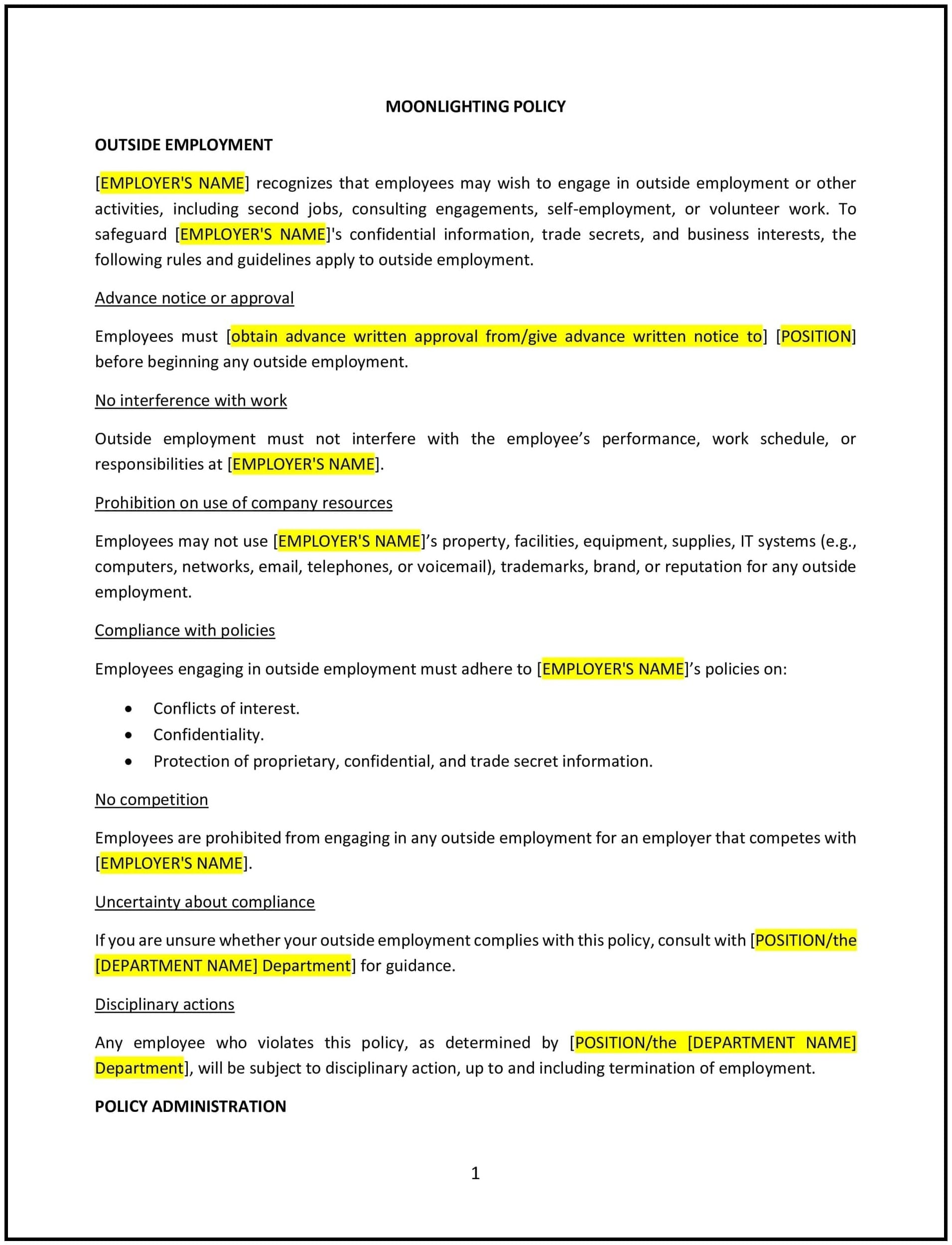Got contracts to review? While you're here for policies, let Cobrief make contract review effortless—start your free review now.

Customize this template for free
Moonlighting policy (Wyoming)
In Wyoming, a moonlighting policy provides guidelines for employees who engage in secondary employment outside of their primary job. This policy helps businesses ensure that outside work does not conflict with the organization’s interests, affect productivity, or compromise confidentiality.
This policy outlines the expectations, restrictions, and procedures related to moonlighting, supporting a fair and transparent approach for all employees.
How to use this moonlighting policy (Wyoming)
- Define moonlighting: Clearly state what constitutes moonlighting, such as any secondary employment or freelance work performed outside of the employee’s primary job.
- Outline disclosure requirements: Include procedures for employees to disclose secondary employment, such as submitting a written request to their supervisor or HR.
- Specify restrictions: Detail any limitations, such as prohibiting work that creates conflicts of interest, violates confidentiality agreements, or impacts job performance.
- Establish approval processes: Provide guidelines for reviewing and approving moonlighting requests, ensuring consistency and fairness.
- Support compliance: Align the policy with Wyoming labor laws and federal regulations to protect employee rights and organizational interests.
Benefits of using a moonlighting policy (Wyoming)
A moonlighting policy provides several advantages for Wyoming businesses:
- Prevents conflicts of interest: Ensures that outside work does not compromise the organization’s interests or create ethical concerns.
- Maintains productivity: Helps employees balance secondary employment with their primary job responsibilities.
- Protects confidentiality: Safeguards sensitive information from being shared or misused in secondary roles.
- Supports compliance: Aligns with employment laws, reducing the risk of disputes or legal issues.
- Adapts to workforce needs: Reflects Wyoming’s diverse industries and unique employment dynamics.
Tips for using a moonlighting policy (Wyoming)
- Communicate clearly: Share the policy with employees during onboarding and ensure it is easily accessible.
- Encourage transparency: Foster an open environment where employees feel comfortable disclosing secondary employment.
- Monitor performance: Regularly review job performance to ensure that moonlighting does not negatively impact primary job responsibilities.
- Provide examples: Include examples of acceptable and prohibited moonlighting scenarios to clarify expectations.
- Review periodically: Update the policy to reflect changes in laws, workforce trends, or organizational priorities.